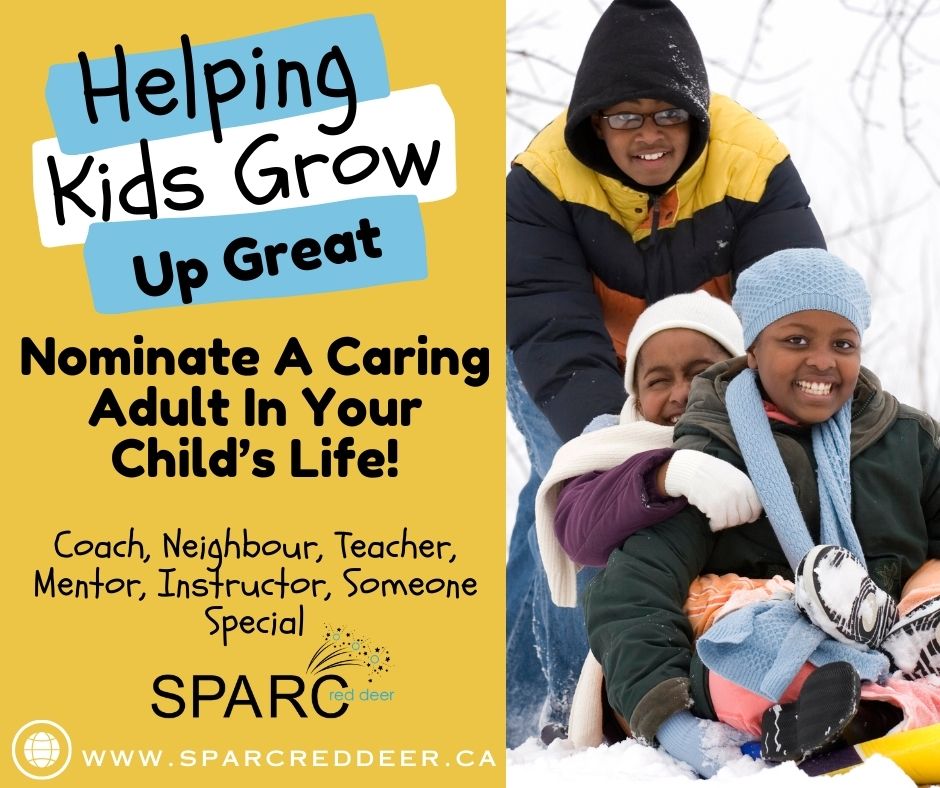Community
SPARC Red Deer – Caring Adult Nominations open now!

Red Deer community let’s give a round of applause to the incredible adults shaping the future of our kids. Whether they’re a coach, neighbour, teacher, mentor, instructor, or someone special, we want to know about them!
Tell us the inspiring story of how your nominee is helping kids grow up great. We will honour the first 100 local nominees for their outstanding contributions to youth development. It’s time to highlight those who consistently go above and beyond!
To nominate, visit Events (sparcreddeer.ca)

Community
Support local healthcare while winning amazing prizes!

|
|
|
|
|
|
Community
SPARC Caring Adult Nominations now open!

Check out this powerful video, “Be a Mr. Jensen,” shared by Andy Jacks. It highlights the impact of seeing youth as solutions, not problems. Mr. Jensen’s patience and focus on strengths gave this child hope and success.
👉 Be a Mr. Jensen: https://buff.ly/8Z9dOxf
Do you know a Mr. Jensen? Nominate a caring adult in your child’s life who embodies the spirit of Mr. Jensen. Whether it’s a coach, teacher, mentor, or someone special, share how they contribute to youth development. 👉 Nominate Here: https://buff.ly/tJsuJej
Nominate someone who makes a positive impact in the live s of children and youth. Every child has a gift – let’s celebrate the caring adults who help them shine! SPARC Red Deer will recognize the first 50 nominees. 💖🎉 #CaringAdults #BeAMrJensen #SeePotentialNotProblems #SPARCRedDeer
s of children and youth. Every child has a gift – let’s celebrate the caring adults who help them shine! SPARC Red Deer will recognize the first 50 nominees. 💖🎉 #CaringAdults #BeAMrJensen #SeePotentialNotProblems #SPARCRedDeer
-

 Alberta2 days ago
Alberta2 days agoAlberta Provincial Police – New chief of Independent Agency Police Service
-

 International2 days ago
International2 days agoCBS settles with Trump over doctored 60 Minutes Harris interview
-

 Business2 days ago
Business2 days agoWhy it’s time to repeal the oil tanker ban on B.C.’s north coast
-

 Energy2 days ago
Energy2 days agoIf Canada Wants to be the World’s Energy Partner, We Need to Act Like It
-

 Alberta2 days ago
Alberta2 days agoPierre Poilievre – Per Capita, Hardisty, Alberta Is the Most Important Little Town In Canada
-

 Aristotle Foundation2 days ago
Aristotle Foundation2 days agoHow Vimy Ridge Shaped Canada
-

 Alberta1 day ago
Alberta1 day agoAlberta uncorks new rules for liquor and cannabis
-

 Canadian Energy Centre2 days ago
Canadian Energy Centre2 days agoAlberta oil sands legacy tailings down 40 per cent since 2015








